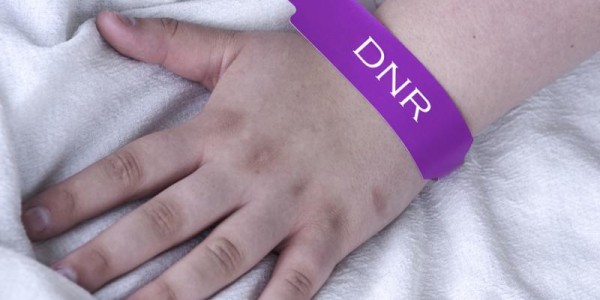By: Lisanne L. Mikula
With increasing frequency, medically-fragile students, such as those who have life-threatening conditions or who are receiving palliative care, attend school when possible. Despite the inherent medical risks which may accompany school attendance, parents and guardians of medically-fragile students, and the pediatric medical professionals who treat them, recognize the benefits of school attendance for these students, such as the improved quality of life which comes with socializing with their peer group.
Schools entrusted with the education of medically-fragile students must balance the desire to protect these students with accommodating the health care preferences of students and their parents and guardians. It is especially challenging when educators—who by nature are inclined to protect all students from harm—are faced with honoring a medical directive that requires that they do not attempt to resuscitate a student. Students and their parents and guardians, meanwhile, want to ensure that if a medical crisis occurs at school their desires regarding medical intervention are honored.
Most people are familiar with a “do not resuscitate” – or DNR – directive in a hospital setting. Pennsylvania is among those states which recognize what is known as an “out-of-hospital” DNR order. An out-of-hospital DNR order ensures that if the patient is not in a hospital setting during a medical crisis, his or her wishes regarding life-saving medical intervention are honored by emergency responders, and, in the case of students, by school staff
Provided certain conditions are met, a patient who is over the age of 18, or the patient’s surrogate – such as a parent or guardian of a minor – can obtain an out-of-hospital DNR order from the student’s attending physician. Out-of-hospital DNR orders must be written on the form which is approved by the Pennsylvania Department of Health. Once completed, the original DNR order is given to the patient with a copy placed in the patient’s medical record.
In addition to issuing the order, the attending physician also may provide a state-approved DNR bracelet or necklace, or both, for the patient. DNR bracelets and necklaces clearly indicate “Out-of-Hospital DNR” on their faces, and must include the patient’s name, the attending physician’s name, and the dated signature of the attending physician.
If a medically-fragile student has an out-of-hospital DNR order, it is imperative that the school have access to the DNR order and that the student wears the state-issued bracelet or necklace at all times while at school. Without these state-mandated indicators of the existence of a DNR order, life-saving measures will be taken, even if the student or the student’s parents or guardians indicate that the student should not be given life-saving treatment.
Federal law regarding students with special needs requires that schools have certain plans in place to address the student’s healthcare needs, commonly known as a 504 Plan. For medically-fragile students who have an out-of-hospital DNR order, it is critical that the required documentation evidencing that DNR order is readily accessible to the school and that the 504 Plan specifically sets forth the existence of the DNR order.
Additionally, the American Academy of Pediatrics recommends that where a student has an out-of-hospital DNR Order, the student’s health care plans include directives that school staff provide specified comfort-care measures such as holding the student, providing supplemental oxygen, or keeping the student warm. Other components that should be included in a medically-fragile student’s individualized health plan are:
- Identification of staff members who should be informed of or educated about the DNR Order
- Location to which the child will be moved in the case of serious distress or sudden death at school
- Protocols for notification of EMS, family, and primary care physician
- Protocols covering the child’s death in school, including who will pronounce the death, as well as a specific plan for removing the body from the school
Because it is beneficial for medically-fragile students to attend school when possible, it is imperative that schools and these students and their parents or guardians take steps to ensure that all parties have the same understanding regarding what to do—or not to do—in the event of a medical crisis.
The Law Firm of DiOrio & Sereni, LLP is a full-service law firm in Media, Delaware County, Pennsylvania. We strive to help people, businesses and institutions throughout Southeastern Pennsylvania solve legal problems – and even prevent legal problems before they occur. To learn more about the full range of our specific practice areas, please visit www.dioriosereni.com or contact Lisanne L. Mikula, Esquire at 610-565-5700 or at [email protected]
Like what you see? Join our mailing list













